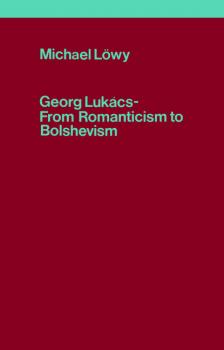Michael Löwy
Список книг автора Michael Löwyad Walter Benjamin
"Marx sagte, die Revolutionen seien die Lokomotive der Weltgeschichte. Doch vielleicht stellen sich die Dinge völlig anders dar. Es ist möglich, dass die Revolutionen für die Menschheit, die wie in einem Zug unterwegs ist, darin bestehen, die Notbremse zu ziehen" (Michael Löwy)
Die Entdeckung des Werkes Walter Benjamins löste bei Michael Löwy einen Schock aus, der so manche Überzeugung erschütterte und mehr als vierzig Jahre lang in seiner gesamten Forschung über heterodoxe Formen des Marxismus in Europa oder Amerika nachwirkte. Der Vision der Revolution als «Lokomotive der Geschichte», die sich unaufhaltsam in Richtung Fortschritt bewegt, wie sie Marx in «Klassenkämpfe in Frankreich» beschreibt, stellt Benjamin eine Version der Revolution als «Notbremse» gegenüber. Sie kündigt bereits sehr früh eine Kritik des Fortschritts und des Wachstums an, die später im kritischen Denken und in der radikalen Ökologie entwickelt wird. Die hier vorgestellten Aufsätze konzentrieren sich auf die revolutionäre Dimension des Werkes Benjamins. In ihnen fließen der von einem unorthodoxen historischen Materialismus inspirierte Ansatz mit Vorstellungen vom jüdischen Messianismus zusammen, die im Lichte seiner «stellaren Freundschaft» mit Gershom Scholem neu überdacht wurden.
Erlösung und Utopie
Das Verhältnis zwischen jüdischem Messianismus und anarchistischer Utopie ist trotz seiner zahlreichen Berührungspunkte durch eine spannungsreiche Verschiedenheit unterschiedlicher Positionen gekennzeichnet. Es reicht von radikaler Unvereinbarkeit wie bei Gershom Scholem und Gustav Landauer bis hin zu wechselseitiger Befruchtung und Erhellung wie im Fall von Ernst Bloch und Walter Benjamin. Eine mögliche Verbindung dieser Pole steht und fällt mit der Überwindung des traditionellen Gegensatzes zwischen Atheismus und Religion, Materialismus und Spiritualität, Nationalismus und Romantik. Michael Löwy konzentriert sich dabei auf eine Gruppe von deutsch-jüdischen Intellektuellen (u.a. Benjamin, Kafka, Rosenzweig, Buber, Scholem, Löwenthal, Landauer, Bloch, Lukács, Fromm), deren Beiträge zu diesem Thema bis heute weitgehend unabgegolten sind.
Georg Lukacs
The philosophical and political development that converted Georg Lukács from a distinguished representative of Central European aesthetic vitalism into a major Marxist theorist and Communist militant has long remained an enigma. In this absorbing scholarly study, Michael Löwy for the first time traces and explains the extraordinary mutation that occurred in Lukács's thought between 1909 and 1929. Utilizing many as yet unpublished sources, Löwy meticulously reconstructs the complex itinerary of Lukács's thinking as he gradually moved towards his decisive encounter with Bolshevism. The religious convictions of the early Lukács, the peculiar spell exercised on him and on Max Weber by Dostoyevskyan images of pre-revolutionary Russia, the nature of his friendships with Ernst Bloch and Thomas Mann, are amongst the discoveries of the book. Then, in a fascinating case-study in the sociology of ideas, Löwy shows how the same philosophical problematic of Lebensphilosophie dominated the intelligentsias of both Germany and Hungary in the pre-war period, yet how the different configurations of social forces in each country bent its political destiny into opposite directions. The famous works produced by Lukács during and after the Hungarian Commune—Tactics and Ethics, History and Class Consciousness and Lenin—are analysed and assessed. A concluding chapter discusses Lukács's eventual ambiguous settlement with Stalinism in the thirties, and its coda of renewed radicalism in the final years of his life.
Fire Alarm
This illuminating study of Benjamin’s final essay helps unlock the mystery of this great philosopher. Revolutionary critic of the philosophy of progress, nostalgic of the past yet dreaming of the future, romantic partisan of materialism … Walter Benjamin is in every sense of the word an “unclassifiable” philosopher. His essay “On the Concept of History” was written in a state of urgency, as he attempted to escape the Gestapo in 1940, before finally committing suicide. Michael Löwy argues that it remains one of the most important philosophical and political writings of the twentieth century, in this scrupulous, clear and fascinating examination. Looking in detail at Benjamin’s celebrated but often mysterious text, and restoring the philosophical, theological and political context, Lowy highlights the complex relationship between redemption and revolution in Benjamin’s philosophy of history.
Redemption and Utopia
Classic study of Jewish libertarian thought, from Walter Benjamin to Franz Kafka Towards the end of the nineteenth century, there appeared in Central Europe a generation of Jewish intellectuals whose work was to mark modern culture. Drawing at once on the traditions of German Romanticism and Jewish messianism, their thought was organized around the cabalistic idea of the ‘tikkoun’: redemption. Redemption and Utopia uses the concept of ‘elective affinity’ to explain the surprising community of spirit that existed between redemptive messianic religious thought and the wide variety of radical secular utopian beliefs held by this important group of intellectuals. The author outlines the circumstances that produced this unusual combination of religious and non-religious thought and illuminates the common assumptions that united such seemingly disparate figures as Martin Buber, Kafka, Walter Benjamin and Georg Lukács.




